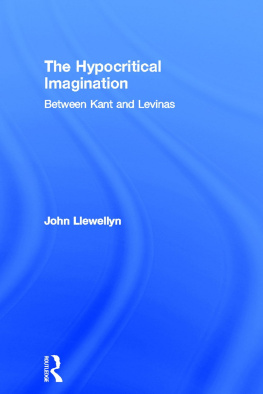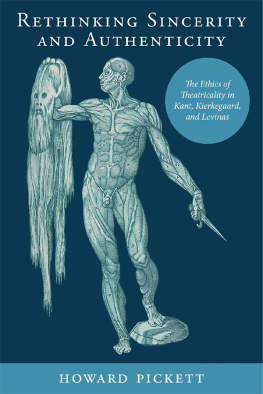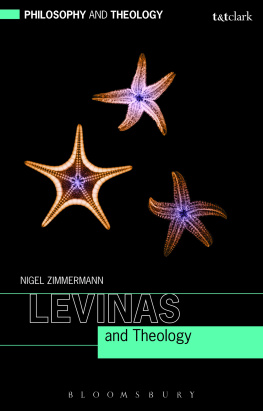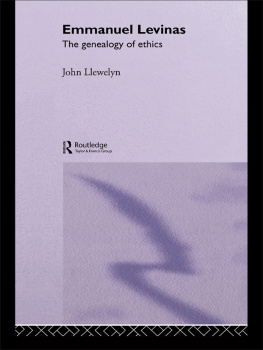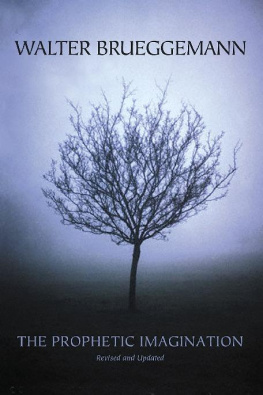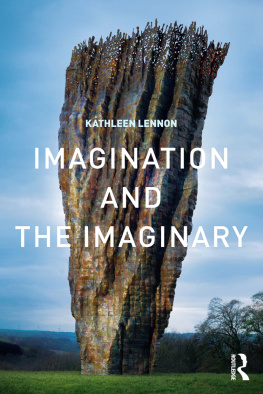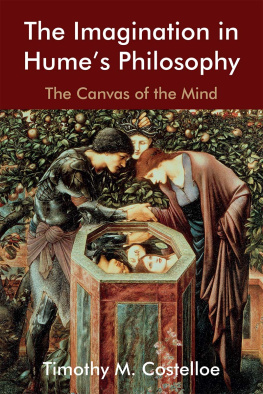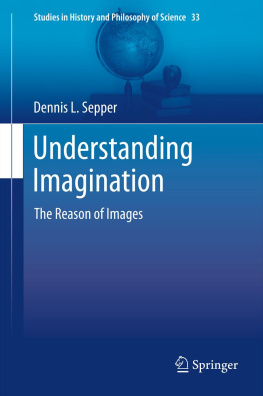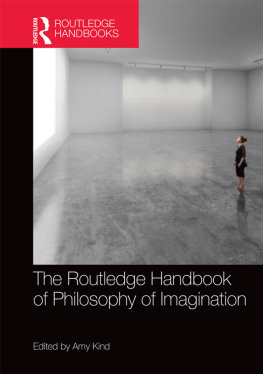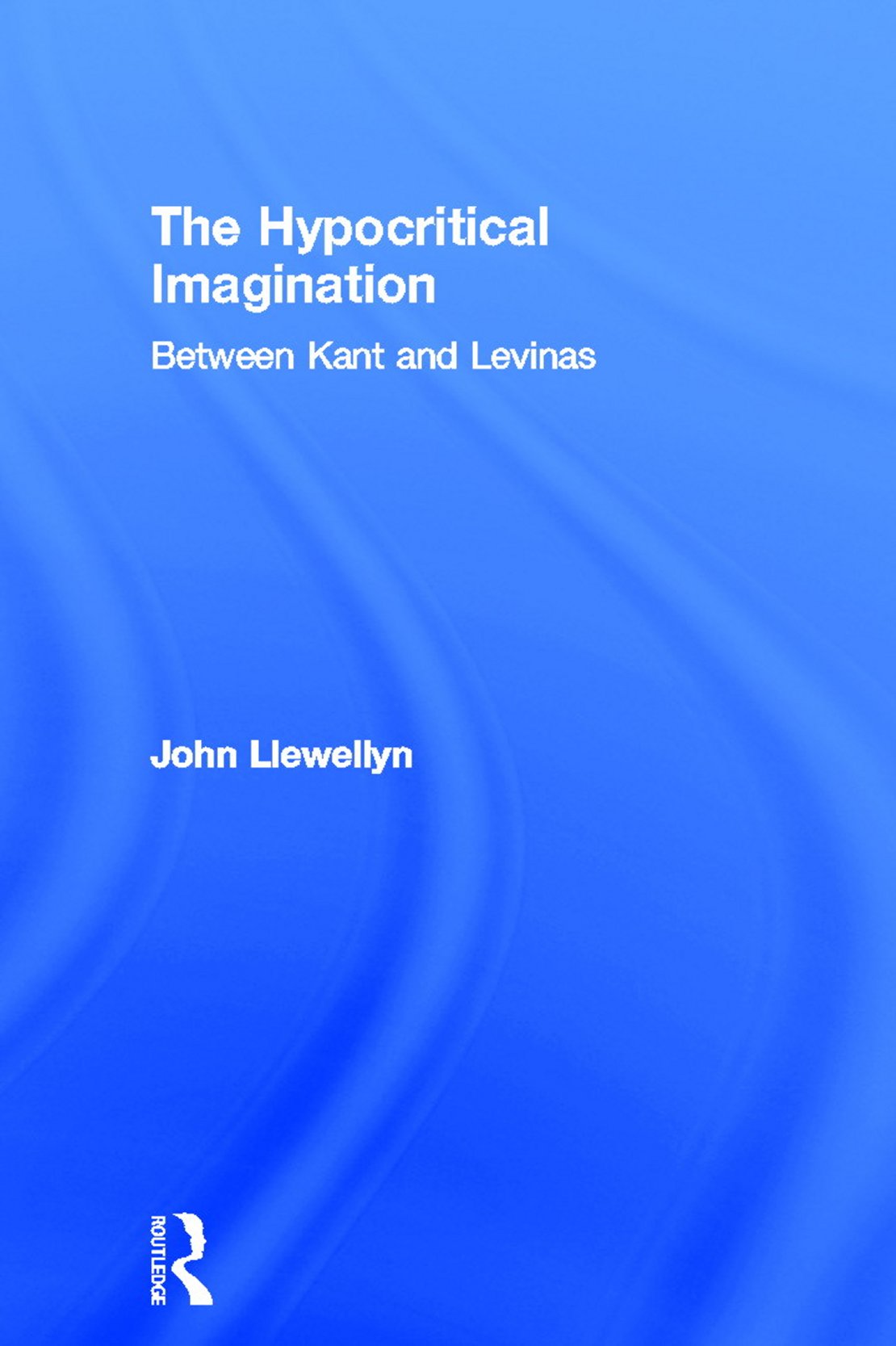In this boldly provocative study John Llewelyn argues that imagination has not been given its due. He asks whether imagination might reach out as far as to touch the rational feeling that in the Critique of Practical Reason is named moral respect, reverence or regard. Might imagination stretch still further, below the moral law that is the ultimate object of awe for Kant to something like the an-archic enigma that Levinas calls the face? Is imagination given its due only by being extended beneath the Kantian root, across and below the discourses of all three Critiques, turned not simply, as the Neo-Kantian slogan enjoins, back to Kant, but back too beyond him, hypoCritically back beyond every root; so that only in doing justice to the imagination in this way would justice be done, as the Husserlian rallying call enjoins, to the things themselves?
On the way to his affirmative answers to these questions, John Llewelyn conducts dazzling analyses of the work of, among others, Schelling, Hegel, Heidegger, Arendt, Derrida, and of the poetics of Emily Dickinson.
WARWICK STUDIES IN EUROPEAN PHILOSOPHY
Edited by Andrew Benjamin
Professor of Philosophy, University of Warwick
This series presents the best and most original work being done within the European philosophical tradition. The books included in the series seek not merely to reflect what is taking place within European philosophy, rather they will contribute to the growth and development of that plural tradition. Work written in the English language as well as translations into English are included, engaging the tradition at all levels whether by introductions that show the contemporary philosophical force of certain works, or in collections that explore an important thinker or topic, as well as significant contributions that call for their own critical evaluations.
Titles already published in the series:
Bataille
Writing the Sacred
Edited by Carolyn Bailey Gill
Emmanuel Levinas
The Genealogy of Ethics
John Llewelyn
Maurice Blanchot
The Demand of Writing
Edited by Carolyn Bailey Gill
Body- and Image-Space
Re-reading Walter Benjamin
Sigrid Weigel (trans. Georgina Paul)
Passion in Theory
Conceptions of Freud and Lacan
Robyn Ferrell
Hegel After Derrida
Edited by Stuart Barnett
Retreating The Political
Philippe Lacoue-Labarthe and Jean-Luc Nancy
On Jean-Luc Nancy
The Sense of Philosophy
Edited by Darren Sheppard, Simon Sparks and Colin Thomas
Deleuze and Philosophy
The Difference Engineer
Edited by Keith Ansell Pearson
Very LittleAlmost Nothing
Death, Philosophy, Literature
Simon Critchley
Blanchot
Extreme Contemporary
Leslie Hill
Textures of Light
Vision and Touch in Irigaray, Levinas and Merleau-Ponty
Cathryn Vasseleu
Essays on Otherness
Jean Laplanche
THE HYPOCRITICAL
IMAGINATION
Between Kant and Levinas
John Llewelyn

London and New York
First published 2000
by Routledge
11 New Fetter Lane, London EC4P 4EE
Simultaneously published in the USA and Canada
by Routledge
29 West 35th Street, New York, NY 10001
Routledge is an imprint of the Taylor & Francis Group
2000 John Llewelyn
Typeset in Times by Taylor & Francis Books Ltd
Printed and bound in Great Britain by Biddles Ltd, Guildford and King's Lynn
All rights reserved. No part of this book may be reprinted or reproduced or utilised in any form or by any electronic, mechanical, or other means, now known or hereafter invented, including photocopying and recording, or in any information storage or retrieval system, without permission in writing from the publishers.
British Library Cataloguing in Publication Data
A catalogue record for this book is available from the British Library
Library of Congress Cataloging in Publication Data
Llewelyn, John
The HypoCritical Imagination: Between Kant and Levinas / John Llewelyn.
(Warwick Studies in European Philosophy)
Includes bibliographical references and index.
1. Kant, Immanuel, 17241804 contributions in philosophy of imagination. 2. Levinas, Emmanuel contributions in philosophy of imagination. 3. Imagination (philosophy) I. Title. II. Series.
| B2799.I55L57 1999 | 99-30340 |
| 128.3dc21 | CIP |
ISBN 0415213614 (hbk)
ISBN 0415213622 (pbk)
In memoriam Nelly Dem
If, below the level of consciousness, our
imagination is at work tidying up the chaos
of sense experience, at a different level it
may, as it were, untidy it again.
Mary Warnock
CONTENTS
PART I
Back through Kant
PART II
From Levinas
PART III
To the things themselves
ACKNOWLEDGEMENTS
By kind permission of the presses and/or editors, parts of this book reproduce in revised form material that previously appeared as follows. dans les Alpes-Maritimes with the support of the Conseil Gnral des AlpesMaritimes. I thank the publishers for permission to cite part of Full moon and Little Frieda, from Ted Hughes, Selected Poems 19571967, London, Faber & Faber Ltd, 1972.
For their support I thank the General Editor of the Warwick Studies in European Philosophy, Andrew Benjamin, and Tony Bruce, Mark Ralph and Tony Nixon at Routledge. For his encouragement, not least his encouragement to take parts of the book back to the drawing-board, I thank Dennis Schmidt. For discussion of many of the issues raised I thank Charles Bigger (whose awe-inspiring Kant's Methodology starts where my study does but follows paths of scientific and humanistic endeavour I do not tread), Robin Durie, James Giles, Fiona Hughes (whose forthcoming book on Kant's aesthetic epistemology supplements mine with textual analysis of Kant beyond the limits to which I have had to restrict myself), Chris Jupp and John Trigg. I thank Ed Casey for his meticulous Imagining: A Phenomenological Study that, as another reader has said, is destined to become a touchstone for all future writings on imagination. Catherine Chalier kindly sent me a copy of her scrupulously just Pour une morale audel du savoir: Kant et Levinas, albeit too late for me to mend my probably pagan ways. She came up with answers to my enquiries about matters Judaic even when she could be expected to sympathize no more than could Levinas with the hypothesis in support of which those answers were to be used. While I was writing about him, she was but one member of a chorus of others who had written about him that I fancied I could hear muttering incredulously over my right shoulder, in many languages, Come, come, notwithstanding that when on the point of bestowing upon Levinas's words an especially violent inflection, I fancied I could hear another multilingual chorus whispering insistently over my left shoulder, Go ahead,

